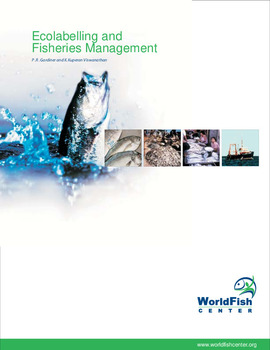Ecolabelling and fisheries management

Citation
Gardiner, P.R.; Viswanathan, K.K. (2004). Ecolabelling and fisheries management. WorldFish Center. Penang, Malaysia. 44 p.
National and intergovernmental regulation of fisheries has not prevented many failures of fisheries management around the world. New approaches to improving the environmental sustainability of fisheries have included the certification of fisheries harvested by sustainable means, and the ecolabelling of fish and seafood products from certified fisheries. The intention is to use the power of markets as an incentive to induce more sustainable fisheries. To date, only a relatively small number of fisheries have been certified, and these have been predominantly in developed countries. Critiques from developing countries of ecolabelling, as currently formulated, focus on five general areas: (1) legitimacy and credibility; (2) a mismatch between certification requirements and the reality of tropical small-scale fisheries; (3) potential distortions to existing practices and livelihoods; (4) equity and feasibility; and (5) perceived barriers to trade. This paper reviews these developing country concerns on the basis of already certified fisheries, and on experiences from forestry, aquaculture and the aquarium industry, and also examines precedents and trends in international environmental and trade issues. It suggests that ecolabelling as currently practiced is unlikely to be widely adopted in Asian countries. Certification may have sporadic success in some eco-conscious, or niche, markets but it is unlikely to stimulate global improvement of fisheries management.
Permalink
Date Available
Type
Publisher
Copyright
CC BY 4.0
Language